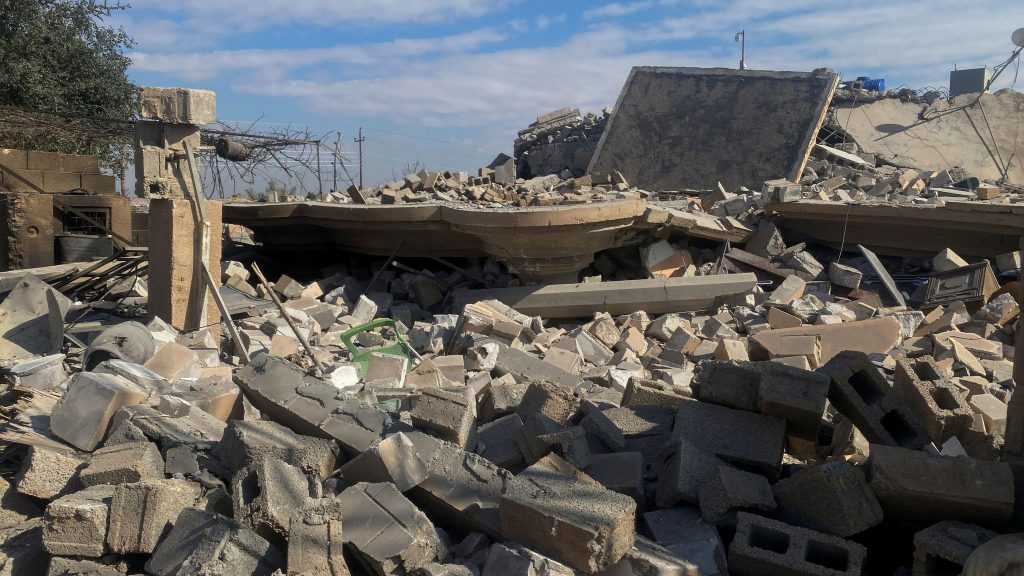The United States has executed an air strike in Iraq, which officials have described as an act of self-defence, as regional tensions surged following an Israeli air strike in Beirut that killed Hamas’ leader Ismail Haniyeh.
The air strike targeted a base south of Baghdad used by Iraq’s Popular Mobilisation Forces (PMF), which reportedly includes several Iran-aligned militias. Iraqi police and medical sources confirmed that the strike resulted in the deaths of four members of the PMF and injured four others. The PMF did not immediately attribute blame for the attack.
US officials, who requested anonymity, confirmed to Middle East Eye, that the strike took place in Musayib, Babil province, but did not provide additional specifics. The officials stated that the operation targeted militants who were believed to be preparing to launch drones and posed a threat to US and coalition forces in Iraq. They emphasised that the strike demonstrated the United States’ commitment to safeguarding its personnel but did not comment on the casualties.
The Iraqi government condemned the strike, with a military spokesperson denouncing it as a “heinous crime” and a serious violation of the coalition’s mission. The attack occurred south of Baghdad and has been described as a breach of the coalition’s mandate.
Last week, multiple rockets were fired at Iraq’s Ain al-Asad airbase, which houses US-led forces. However, no damage or casualties were reported, and US officials confirmed that none of the rockets hit the base.
This air strike is the first known US action in Iraq since February, when the US military targeted more than 85 sites in Iraq and Syria linked to Iran’s Islamic Revolutionary Guard Corps (IRGC) and affiliated militias.
The PMF, a state-sanctioned group of Iraqi paramilitaries, is heavily influenced by Iran and maintains close ties to the IRGC. Iraq remains a rare ally of both the US and Iran, hosting 2,500 US troops and dealing with Iran-backed militias linked to its security forces.
Tensions have risen since the onset of the Israeli-Palestinian conflict in Gaza in October. The Baghdad government has indicated that it wishes for US-led coalition troops to begin withdrawing by September and to conclude their mission by September 2025, though some US forces may remain in an advisory role.
The political dynamics are complex, with Iranian-aligned Iraqi factions aiming to expel foreign forces, while US officials seek to avoid giving Iran and its allies any perceived victory.
The US-led coalition initially invaded Iraq in 2003, removed former leader Saddam Hussein, and withdrew in 2011, only to return in 2014.

